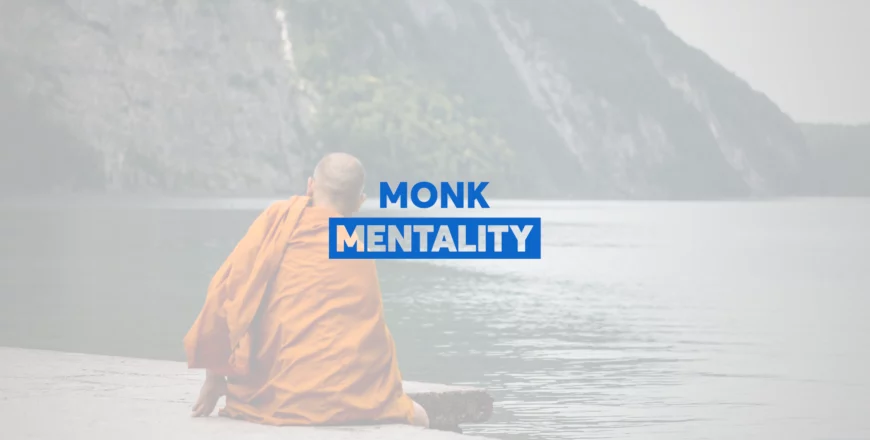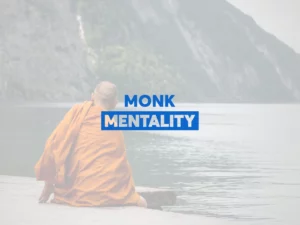
Course 3: Monk mentality
- Description
- Curriculum
- FAQ
- Reviews

The term “monk mentality” typically refers to a mindset to life that emulates the qualities and practices associated with monks.
Studies over the years have revealed that monks are the happiest, calmest, and most focused people in the world. One monk’s brain produced the highest amounts of gamma waves—the waves associated with attention, memory, learning, and happiness—ever recorded.
The monk mentality is not limited to individuals living in monasteries. It can also inspire people in their everyday lives, encouraging them to adopt certain principles such as decluttering, simplicity, mindfulness, seeking wisdom, going out in nature and service to others. The monk mentality can be seen as a way to find meaning, purpose, and a deeper connection to oneself and the world around us.
Course Outcomes (What you’ll learn)
Declutter your life: By the end of the course, members will be able to implement practical strategies to declutter their physical and mental spaces, promoting a simpler and more intentional lifestyle.
Meditate: By the end of the course, members will be able to establish and maintain a regular meditation practice to enhance mindfulness, self-awareness, and emotional well-being.
Seek Wisdom from elders: By the end of the course, members will be able to recognize the value of seeking wisdom from experienced individuals or elders and actively engage in learning from their insights and experiences.
Go out in nature: By the end of the course, members will be able to appreciate the restorative power of connecting with nature and apply mindfulness and reflective practices while spending time outdoors.
Service to others: By the end of the course, members will be able to understand the importance of selfless service and engage in acts of kindness and compassion to benefit others and foster personal growth.
By the end of the course, members should possess the knowledge, skills, and attitudes necessary to integrate these practices into their lives and experience personal growth and improved overall well-being.
Course Duration (The length of time to learn this course, or the amount of time that the course programme goes on for (might be 3 hours of study, or it might be 7 days of sticking to the course schedule)
This course will require 90 minutes of watching the video, reading course material and passing the quizzes. Then you apply this mindset everyday damn day for the rest of your life !!!
-
1Monk Mentality - Introduction
-
2Lesson 1 - Declutter your life
-
3Lesson 1 - Declutter your life Quiz
-
4Lesson 2 - Meditate
-
5Lesson 2 - Meditate Quiz
-
6Lesson 3 - Seek Wisdom from elders
-
7Lesson 3 - Seek Wisdom from elders Quiz
-
8Lesson 4 - Going out in nature
-
9Lesson 4 - Going out in nature Quiz
-
10Lesson 5 - Service to others
-
11Lesson 5 - Service to others Quiz










